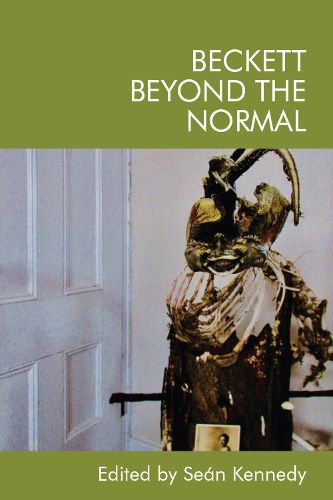Readings Newsletter
Become a Readings Member to make your shopping experience even easier.
Sign in or sign up for free!
You’re not far away from qualifying for FREE standard shipping within Australia
You’ve qualified for FREE standard shipping within Australia
The cart is loading…






Explores Beckett’s artistic vision at the intersection of queer, disability and posthumanist studies
The first volume to address norms and normalcy as an enduring target of Beckettian skepticism
Shifts the emphasis from generic talk of ‘Other Becketts’ to specific accounts of the queer, the disabling, the abnormalising aspects of the mature works
Absorbs and transcends the philosophy/history binary that has shaped the last twenty years
Brings Beckett Studies into the twenty-first century as the first intersectional volume to address queerness, disability and biopolitics together
This book examines why Beckett’s writing is so queer, so disabled and disabling. Why did Beckett write so often about mental illness, disability, perversion? Why did he take such an interest in ‘abnormals’ and ‘degenerates’? How did he reconceive ‘the human’ in the wake of Hitler and Stalin? Drawing on Beckett’s voluminous archive, as well as his primary texts, the authors use psychoanalysis, queer theory, disability theory and biopolitics to push Beckett studies beyond the normal.
$9.00 standard shipping within Australia
FREE standard shipping within Australia for orders over $100.00
Express & International shipping calculated at checkout
Explores Beckett’s artistic vision at the intersection of queer, disability and posthumanist studies
The first volume to address norms and normalcy as an enduring target of Beckettian skepticism
Shifts the emphasis from generic talk of ‘Other Becketts’ to specific accounts of the queer, the disabling, the abnormalising aspects of the mature works
Absorbs and transcends the philosophy/history binary that has shaped the last twenty years
Brings Beckett Studies into the twenty-first century as the first intersectional volume to address queerness, disability and biopolitics together
This book examines why Beckett’s writing is so queer, so disabled and disabling. Why did Beckett write so often about mental illness, disability, perversion? Why did he take such an interest in ‘abnormals’ and ‘degenerates’? How did he reconceive ‘the human’ in the wake of Hitler and Stalin? Drawing on Beckett’s voluminous archive, as well as his primary texts, the authors use psychoanalysis, queer theory, disability theory and biopolitics to push Beckett studies beyond the normal.